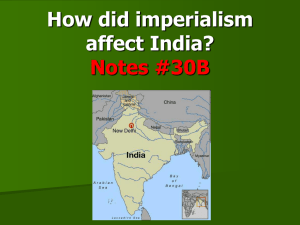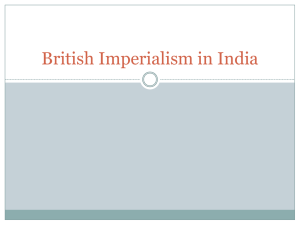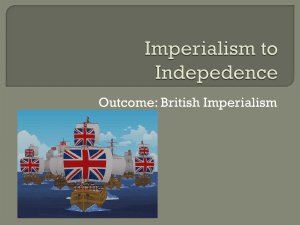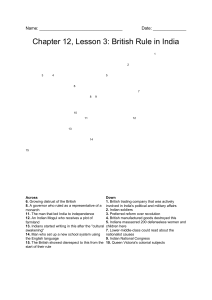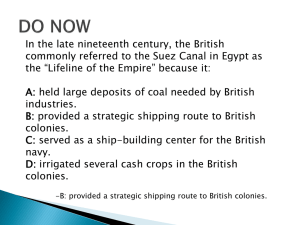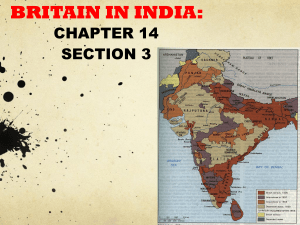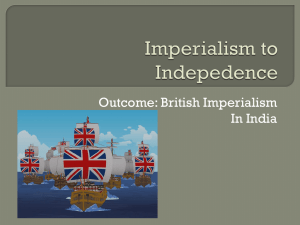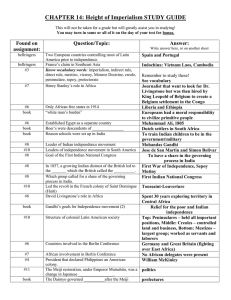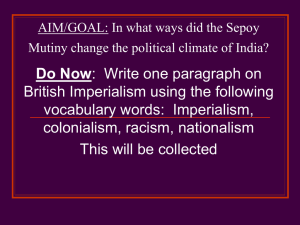Chapter 14: The Height of Imperialism
advertisement
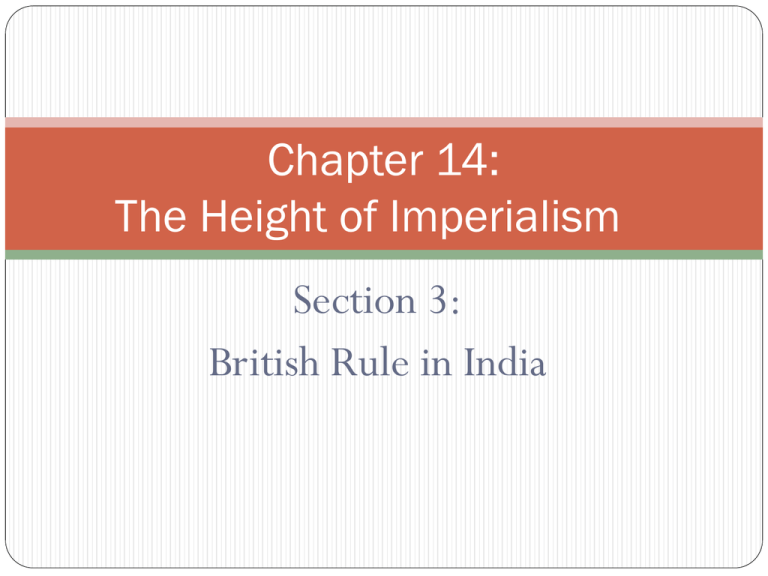
Chapter 14: The Height of Imperialism Section 3: British Rule in India The Sepoy Mutiny The British East India Company was given power by the British Government to become actively involved in India’s political and military affairs. Sepoys are Indian soldiers hired by the British to protect the interest of the British East India Company. In 1857 the Sepoys revolted against the British know as the Sepoy Mutiny by the Indians or the Great Rebellion by the British. The revolt was crushed within a year. Colonial Rule British ruled India directly through an official known as a viceroy. Viceroy is a governor who rules as a representative of a monarch. Had a staff of about 3,500 people. They ruled about 300 million. Colonial Rule Positive and Negative effects Positive Order to society Negative Destroyed local industry Honest government Increased taxes Persuaded Indians to grow School system cotton Infrastructure Top jobs reserved for British disrespected Indian culture Racism An Indian Nationalist Movement The first Indian nationalist were upper-class, English-educated people who preferred reform over revolution. In 1915 Mohandas Gandhi, a young lawyer, returned to India from South Africa. He used his experience from South Africa to turn the Indian independence movement into one of nonviolent resistance. It led to independence.
